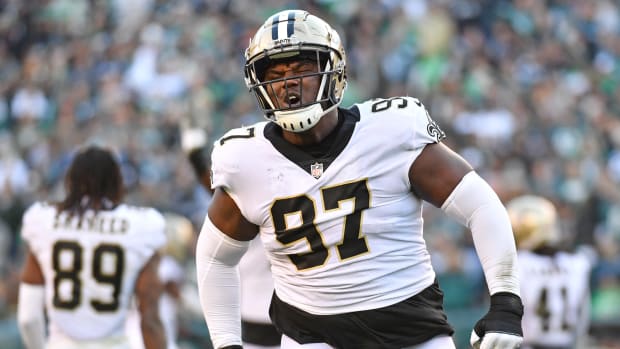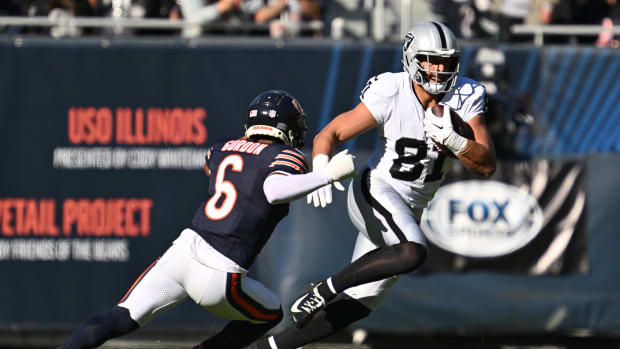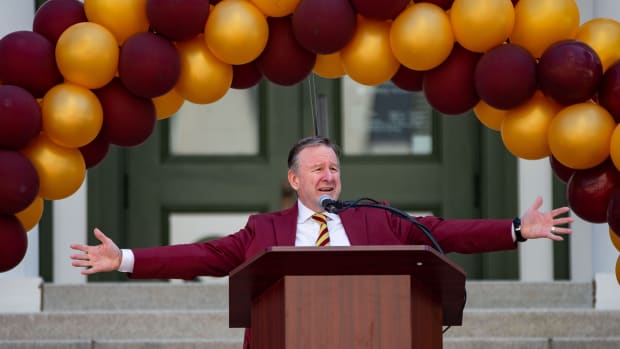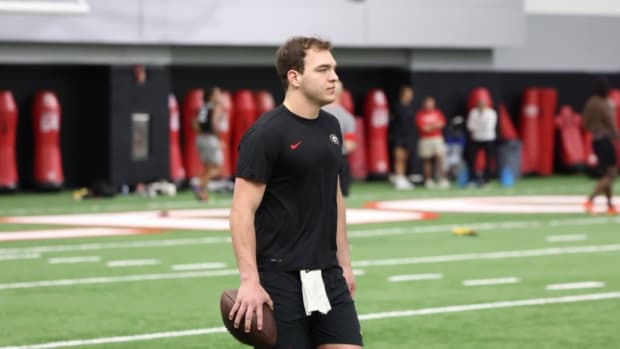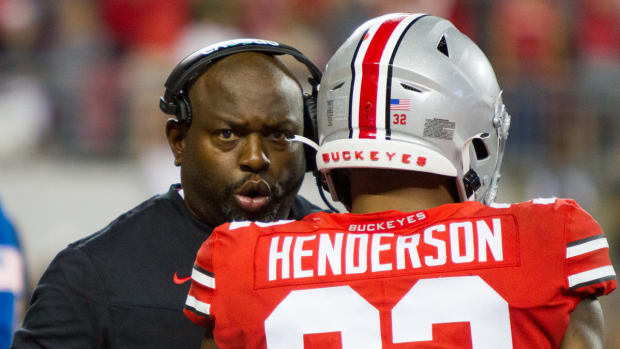Notre Dame Forced to Vacate Wins From National Runner-Up Season
The NCAA has ordered Notre Dame to vacate its football wins from the 2012 and 2013 seasons after denying the school’s appeal of sanctions tied to academic misconduct.
You have reached your limit of 4 premium articles
Register your email to get 1 more
The Irish won 12 games in 2012 before losing to Alabama in the BCS championship game and went 9–4 in 2013.
A student-trainer was found to have completed coursework for two Notre Dame players and provided impermissible academic benefits to another six.
Five players—DaVaris Daniels, Kendall Moore, Eilar Hardy, KeiVarae Russell and Ishaq Williams—were suspended before the 2014 season for academic improprieties, bringing the case to the public eye. Everett Golson, the starting quarterback for the 2012 team, missed the 2013 season because he was suspended from the university due to academics.
The NCAA initially ordered the wins vacated in 2016 but the school filed an appeal, which was denied Tuesday. (Other sanctions included a year of probation, a $5,000 fine and a show-cause order against the trainer accused of facilitating the academic fraud.)
“Let me be clear that we in no way excuse the very serious instances of academic dishonesty committed by our students,” Notre Dame president Rev. John I. Jenkins wrote in a letter responding to the NCAA’s decision. “Academic fraud strikes at the very heart of our educational mission and the values of Notre Dame. That is why, when we first became aware that academic misconduct might have occurred, we spared no effort, consistent with the procedures of our Honor Code, to investigate each instance of possible academic misconduct. After an exhaustive investigation that covered four months, significant but appropriate penalties were administered by our Honesty Committee to all students found responsible for academic dishonesty, including the three members of our football team whose conduct underlies the vacation of wins penalty, as well as students involved who were not members of any athletic team.
“There is no precedent in previous NCAA cases for the decision to add a discretionary penalty of vacation of team records in a case of student-to-student cheating involving a part-time student worker who had no role in academic advising. In every other case in the record—meticulously detailed in the University’s arguments—the institutional representative of the university was employed as an administrator, coach, or person who served in an academic role. The Committee simply failed to provide any rationale why it viewed the student-worker as an institutional representative in our case. This is more disturbing given that, in 2016, the member institutions of the NCAA amended the academic misconduct rules to make clear that students who serve in roles identical to that of the student in our case would not be considered institutional representatives. If the Committee members chose to depart both from precedent and the position adopted by the NCAA membership, it was incumbent on them to offer an explanation. They did not.”
